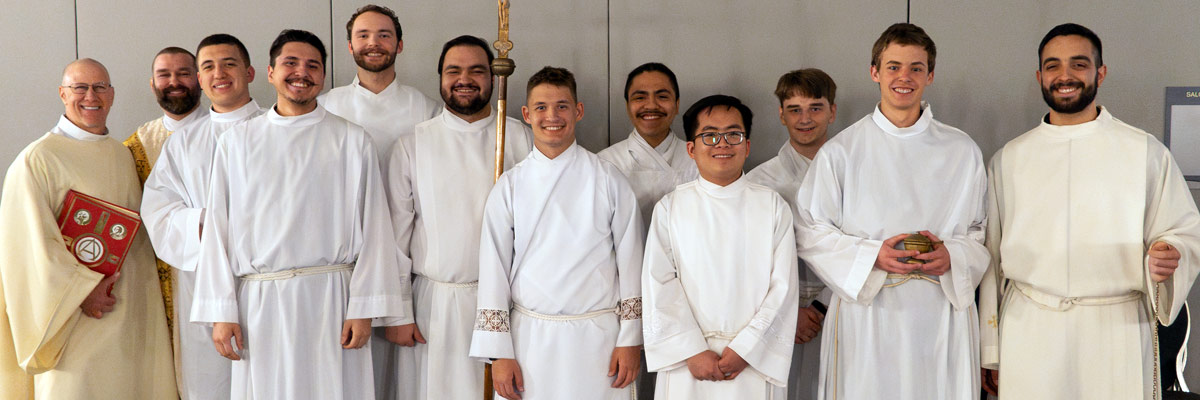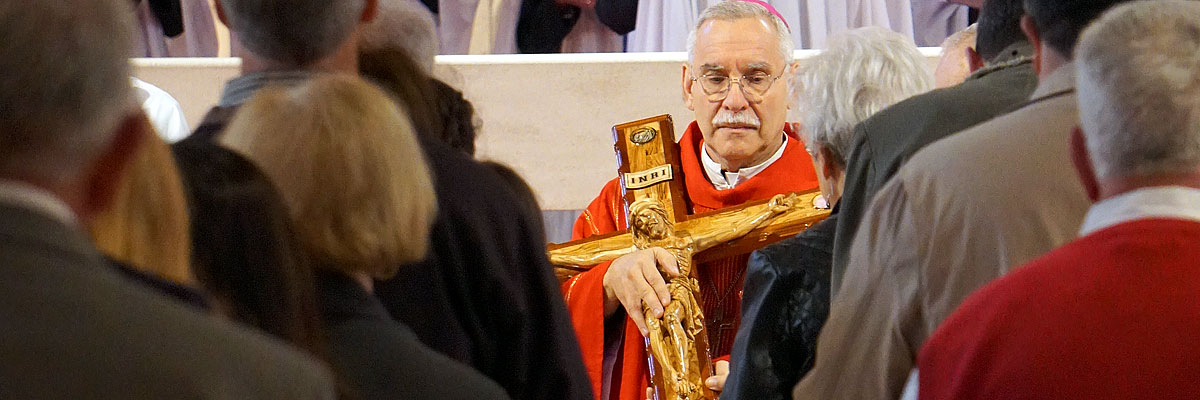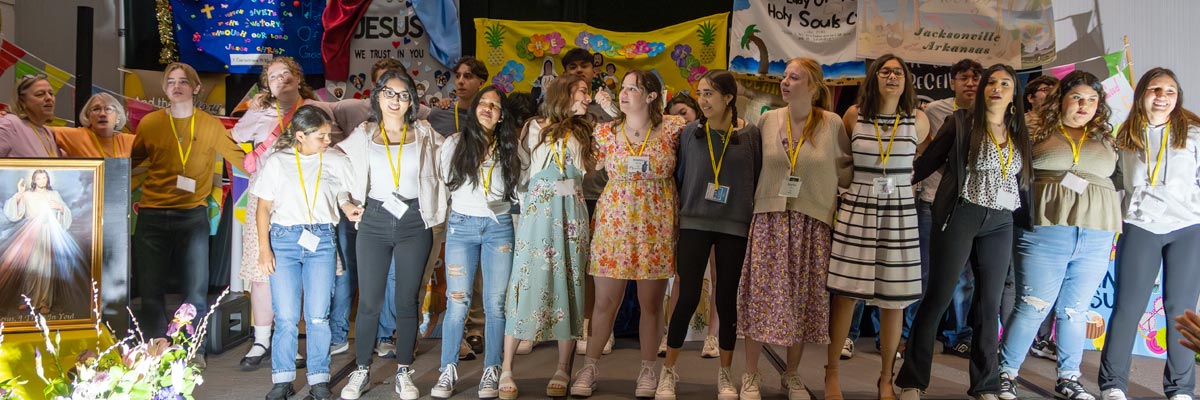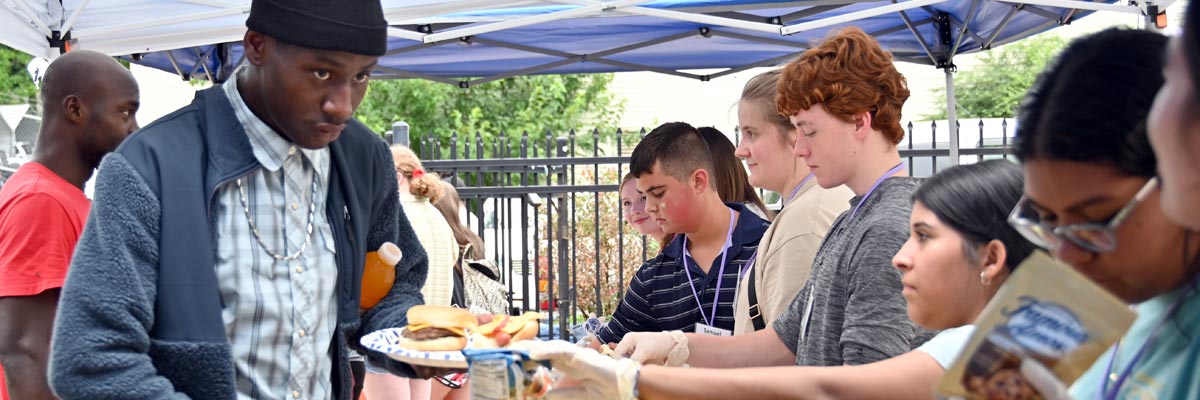Official Website of the
Catholic Diocese of Little Rock
The Solemnity of the Most Holy Trinity 2025
Published: June 14, 2025
Bishop Anthony B. Taylor preached the following homily for the Jubilee Celebration June 14, 2025, at St. Raphael Church in Springdale.

Bishop Taylor
Today is Trinity Sunday and the closing Mass of our Eucharistic Revival and Jubilee of Hope, as well as Father’s Day, meaning a day to give glory to our Heavenly Father, along with the Son, our Eucharistic Lord, and Holy Spirit, and at the same time to pray for and thank God for the earthly Father through whom he has given us life.
First, let’s focus on the Blessed Trinity and our Eucharistic Revival and Jubilee of Hope, since the Trinity and Eucharist are so central to our faith, and I’d like to start with a question: In Mass, when we pray to “Our Lord,” who are we talking to? To the God the Father or to Jesus?
In the Gospels — prior to his death — when people call Jesus “Lord,” they thought of him as a great person but still only human. It was only after Pentecost that people began to understand that Jesus was God as well as man, such that, unlike with Mary and the saints, when we pray to him, we do more than just praise him and ask him to intercede for us.
In Mass, when we pray to “Our Lord,” who are we talking to? To the God the Father or to Jesus?
We worship him just like we do the Father because Jesus is God too, the second person of the Trinity. So, when we pray to “Our Lord” at Mass, who are we talking to? When I start with “Let us pray” — the answer is, to “God the Father” but since the Trinity is One God, we can’t address the Father without also including the Son and Holy Spirit.
That’s why, though these prayers are to the Father, they are “through Our Lord Jesus Christ, your Son, who lives and reigns with you and the Holy Spirit, God forever and ever.”
But there are also other times during Mass when we do address our prayers directly to Jesus rather than to the Father, namely whenever we ask for forgiveness of our sins. Since he is the “Lamb of God who takes away the sins of the world,” it’s mainly our Eucharistic Lord whom we ask to have mercy on us, both in the Penitential Rite at the beginning of Mass and at the Lamb of God just before Communion. But again, not to the exclusion of the Father and the Holy Spirit, because I also pray “May Almighty God — the Father — have mercy on us, forgive us our sins and bring us to everlasting life.”
And what about the Holy Spirit? Well, you may be surprised to learn that though we do speak about the Holy Spirit, we don’t address any prayers directly to him during Mass. But in the Eucharistic Prayer, we have the epiklesis — when the priest extends his hands over the offering, in which we ask the Father “to send forth the Holy Spirit upon these gifts so that they may become for us the body and blood of our Lord, Jesus Christ.”
Then, a little later, we pray that “all who share in the body and blood of Christ be brought together in unity by the Holy Spirit.” Moreover, the Holy Spirit is very much a part of all of our prayers, whether addressed directly to the Father or to the Son, because the gift of prayer itself, our very ability to pray, comes from the Holy Spirit moving inside us and among us as Church.
Today, as we gather to celebrate the feast of the Blessed Trinity on what this year happens also to be the closing Mass of our Eucharistic Revival, the Jubilee of Hope and Father’s Day, we direct our prayers to all three persons of the Blessed Trinity.
We pray to do the Father’s will on earth as it is in heaven, and we ask him to provide for our needs. We pray to Jesus for forgiveness and peace. And we ask the Holy Spirit to unite us and make us holy in the body and blood of Christ.
Today, on Father’s Day, we invoke all three persons of the Blessed Trinity, asking God to shower abundant blessings on these men who, in most cases, along with their wives, were our first teachers in the faith. It was through our natural fathers that God, our heavenly Father, has given us life and protected us when we were young and vulnerable, provided for us and nurtured our physical and spiritual growth.









